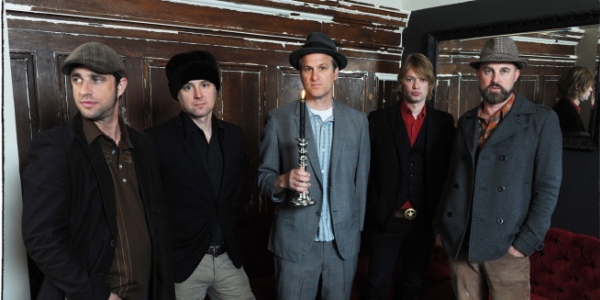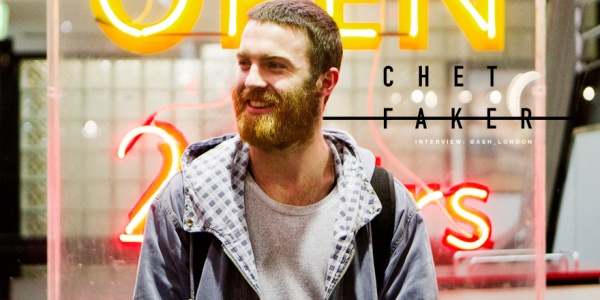“I could say that when we first started out there were no really young people, and there were no really old people,” McCrea recalls. “When we first started out, our audience were college kids only. Our first song that was played on the radio was on college radio. That explains that. Then as the years progressed we started to see people in their mid-20s, and some in their early 30s. Then we had a song on alternative radio, I guess. That changed things quite a bit, things started to get really weird – starting to see these 15-year-olds in the audience. Now obviously we’ve been around for a long time, some of the people that listen to music as they get older – which is not many, actually. Some people just stop listening to music. But we see those people in the crowd as well. Then we had some success with this last album [Showroom Of Compassion] – which we released by ourselves – which was very surprising. We weren’t expecting success. Now there’s another round of young people that are aware of us. And that’s good, too.”
Even at the band’s commercial peak, Cake’s idiosyncrasies set them far apart from their peers. As McCrea explains, it’s a notion that still permeates even now. “I can’t speak for the whole band, but I definitely felt like an outsider. That’s certainly how we’ve managed to survive. We’ve never been the next big thing, or there’s never been an explosive sense of success. It’s always been very gradual. I’ve had moments that I can identify looking back when I’ve been legitimately surprised that someone knows what I do or who I am, what I look like. That’s not the case with every band that I meet – it’s more of an explosive, celebratory cultural awakening. For us, it’s just been really gradual. Which in some ways is really great, and in other ways really not,” he ponders. “You have to be grateful for the cards you’ve been dealt. I can say that all the bands that were high up on the bills when we were opening festivals. We entered the whole experience very humbly, the three years later we’d do the same festivals and there would be a whole new set of ‘really important’ bands above us on the bill. Then I guess the same thing would repeat every three years. All of the bands we started off alongside, with very few exceptions, have really sustained their existence I guess. There’s sort of a consume and discard aesthetic with culture. I don’t think people think of it as discarding human beings, but it is actually discarding human beings. Everything is symbolic, discarding iconography, discarding a sense of celebration that they once had in their life and no longer feel. It’s actually people, so it’s always been a little eerie to me.”
Despite an ostensible tag of ‘alternative’ throughout the ’90s, Cake’s back catalogue has embedded itself well within the mainstream psyche – with their tracks proving conducive for environments such as instore supermarket radio. “Intellectually I can certainly wrap my head around why it happens and how it happens,” McCrea rationalises. “We play music that is not intentionally made to exclude certain sectors of the population. So it’s understandable that people can listen to our music at a supermarket without too much pain. We didn’t set out like a lot of alternative bands to scientifically create music to make parents angry or make someone reject it. That’s more of a tribal than musical inclination, it’s more about tribal affiliation than notes. For us, musically, it was about ‘This is music we like, this is the way it sounds, and if other people like it at supermarkets, that would be ok with us.’ Because we’re trying to be honest about what we like and why we like things. I like a lot of music that’s been popular in the last 100 years like Cole Porter, Irving Berlin, Hank Williams. These people were purveyors of popular music at the time. I like those song structures, I like those lyrics, I like those melodies. Sometimes they are more clever that lyrics that may have more subcultural authenticity. Maybe Cole Porter can run circles around Lou Reed, in some ways.”
BY LACHLAN KANONIUK

